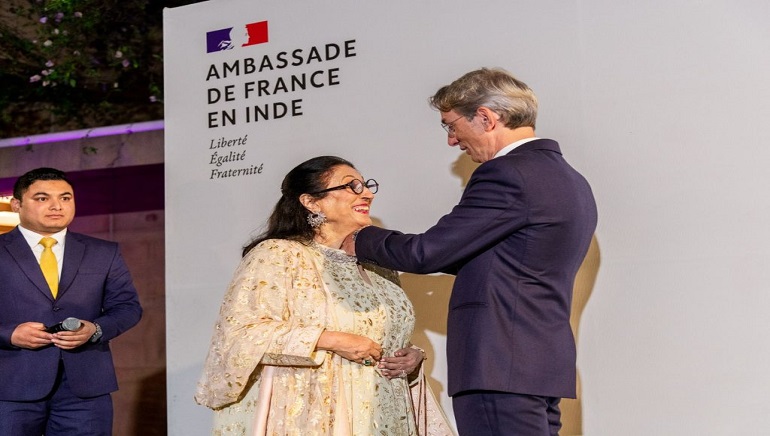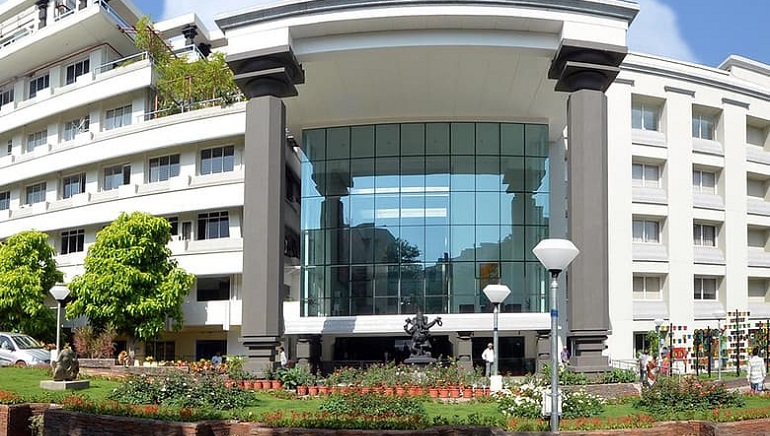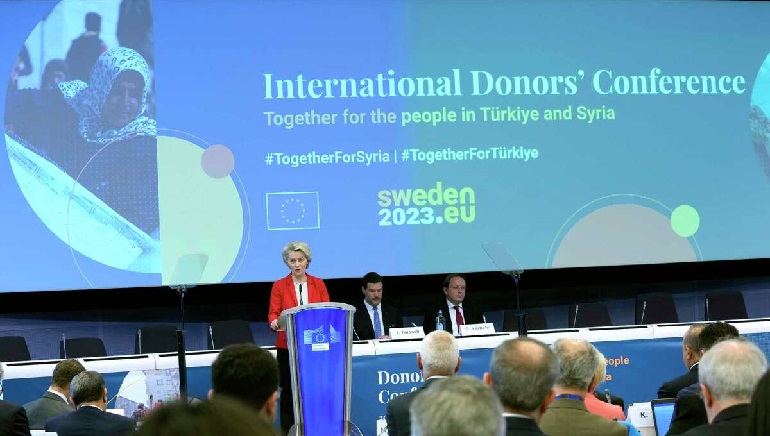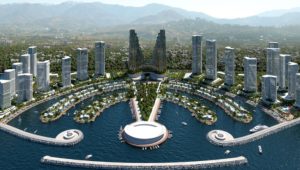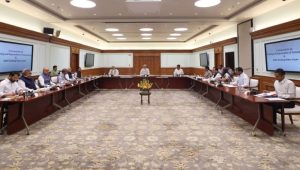Indian philanthropist and art collector Kiran Nadar was recently conferred Chevalier de la Légion d’Honneur (Knight of the Legion of Honour) by French Ambassador to India Emmanuel Lenain in recognition of her outstanding contribution in the field of art.
Nadar, Chairperson, Kiran Nadar Museum of Art (KNMA) – a philanthropic initiative in art – and a trustee of the Shiv Nadar Foundation has been recognised for her commitment to providing greater access to culture both nationally and internationally, and playing a vital role in advancing Indo-French cultural ties, and artistic cooperation.
“It is an absolute privilege for me to be conferred ‘Chevalier de l’Ordre national de la Légion d’Honneur’ and I am deeply grateful to the French Government for this great honour,” Kiran Nadar said in a statement. “KNMA has a longstanding relationship with France in the cultural space. Our partnership with France has been instrumental in bringing together diverse perspectives and promoting cultural exchange,” the statement added.
In 2022, KNMA joined hands with Alkazi Foundation and the French Institute in India to create “Converges”, the largest exhibition of original pictures from French photographers ever shown in India. This exhibition was brought to India as part of Bonjour India 2022, a six-month cultural festival organised by France across India as a present for India’s 75th Independence anniversary.





